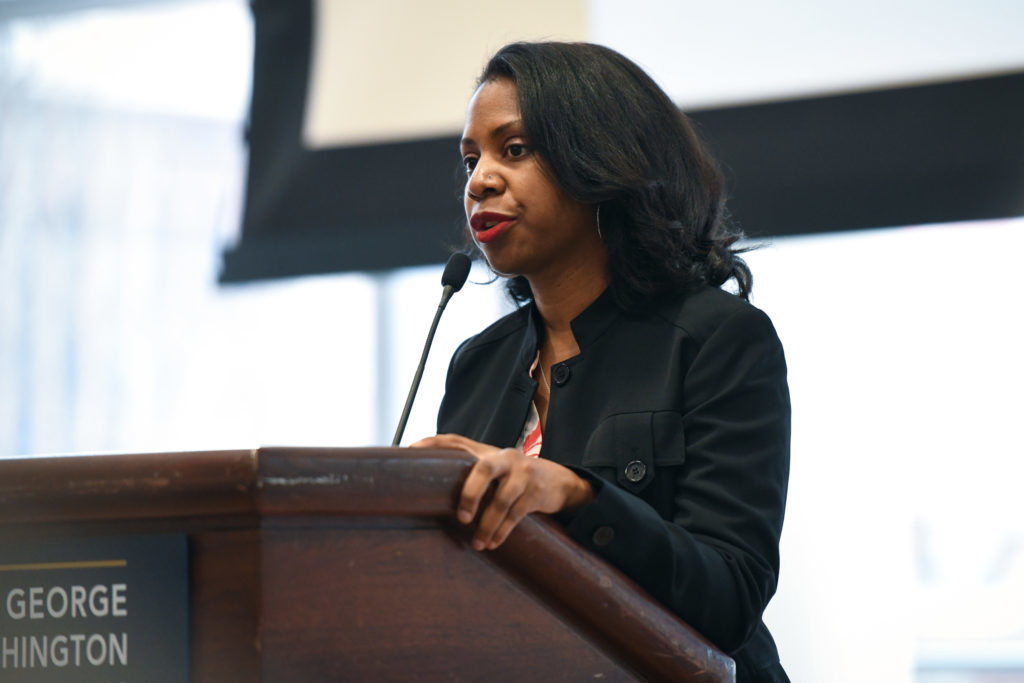The Alumni Association wants to recruit more international graduates to join its leadership so they can reach alumni in about 150 countries around the world.
Alumni Association President Venessa Marie Perry said the organization wants to fill some of its newly vacated positions with alumni living oversees. Leaders of the group said alumni living abroad serve as valuable recruiters and mentors to international students at GW and can broaden the work of the Alumni Association.
Perry said the Alumni Association hasn’t had enough international representation in the past and currently only has one international alumnus on its board of directors.
She said the process for filling future spots on the board has been opened up to make sure the entire GW community is represented. But didn’t offer many details on how the organization would recruit board members from overseas.
“It will allow us to engage in outreach better and get those alumni who typically have not been connected to the University connected and engaged with the University,” she said.
Last year, Perry announced the board would shrink in the coming years as less active members step down to make room for a more diverse membership and more involved leaders.
Marilyn Yakowitz, a member of the board of directors who lives in Paris and stepped down as president of the GW alumni chapter last year, said international alumni are equally as interested in GW as domestic alumni, but the Alumni Association hasn’t focused on recruiting them to the board.
In a survey last year, which Yakowitz said received twice the typical number of responses, alumni in Paris said they wanted the Alumni Association board to increase its operations abroad, holding more networking events and creating more opportunities to interact with current students.
“As an advocate for international alumni, I never feel enough is being done,” she said.
Yakowitz said former students living abroad can also host events to urge prospective students to attend GW and help current students get a more international perspective that can give them a career advantage in an increasingly globalized world.
“In a number of cities, we have people who have companies, are able to help fund activities, and who want to work with the GWAA board and come in as board member, and I think we need to be more open to them,” she said.
The number of international students at GW has soared in recent years as officials have made international enrollment a key priority. Last week, the University debuted a new website combining its international research, student support and study abroad resources in one place.
Last fall, the percentage of international students at GW dipped slightly following years of increases.
Yakowitz said before changes are made to better connect international alumni with GW, the Alumni Association should solicit feedback from alumni in different countries to figure out how they want to connect.
International alumni may not be as inclined to donate to the University because the U.S. has tax incentives for philanthropy that don’t always exist abroad, she added. GW has relied on a network of billionaire donors around the world for major donations in recent years.
GW has been struggling with its alumni giving rate, with only about 7 percent of graduates giving back to the University. The Board of Trustees created a task force last summer to tackle institutional issues that have kept rates low.
Jeff Fair, a member of the Alumni Association’s board of directors, is in the military and has been abroad at different times during the last decade but is now back in Maryland. He said international participation can be difficult because the board doesn’t broadcast their quarterly meetings online, instead relying on conference calls.
When he lived in Seoul, South Korea, Fair said GW’s local alumni chapter was very active, especially in sending students off to college at annual events called summer send offs. He said alumni can help international students, who often face challenges like language and cultural differences, as they adjust to life in the U.S. and at GW.
“I think they just want to support those students as they go through some major adjustments, and deal with some challenges that those of us who were domestic students didn’t really face, whether it be cultural, lingual, separation from family and familiar places and faces,” he said.
Student Association President Peak Sen Chua, an international student from Malaysia, said international students can go to GW to build their connections abroad even if there is still work to be done to improve the student experience.
“I think it’s important to have international alumni on the board because they play a really large role in welcoming students to GW and ensuring that GW is not only a community in D.C. but around the world,” he said.




